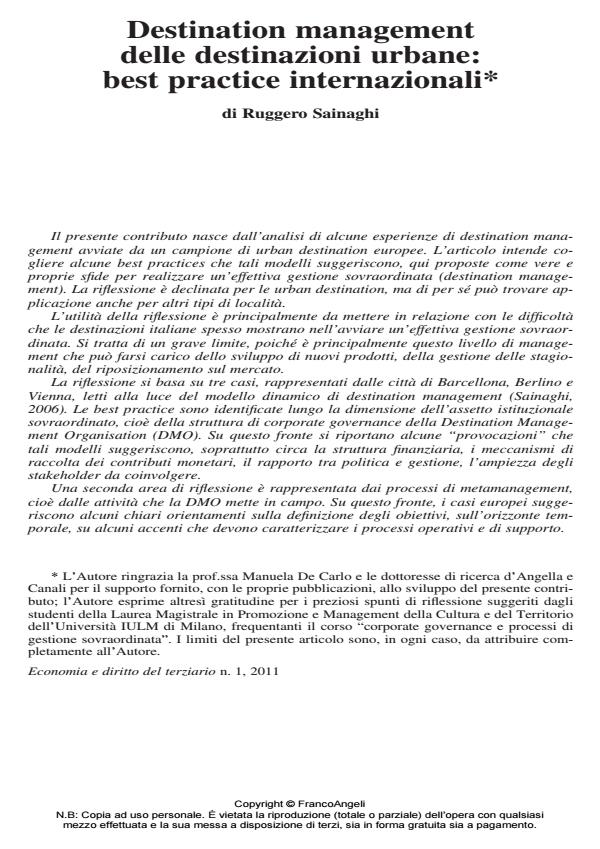Destination management delle destinazioni urbane: best practice internazionali
Journal title ECONOMIA E DIRITTO DEL TERZIARIO
Author/s Ruggero Sainaghi
Publishing Year 2011 Issue 2011/1
Language Italian Pages 20 P. 57-76 File size 514 KB
DOI 10.3280/ED2011-001004
DOI is like a bar code for intellectual property: to have more infomation
click here
Below, you can see the article first page
If you want to buy this article in PDF format, you can do it, following the instructions to buy download credits

FrancoAngeli is member of Publishers International Linking Association, Inc (PILA), a not-for-profit association which run the CrossRef service enabling links to and from online scholarly content.
The present article is based on some European destination management experiences. The paper identifies some best practices that these empirical models suggest, described as "pillars" to found a meta-management activity. The reflection is anchored on urban tourism, but the conclusions are also relevant for other kinds of destinations. The sample includes three cases: the cities of Barcelona, Berlin and Vienna, analysed using a dynamic destination management model (Sainaghi, 2006). The best practices are identified along the governance structure of the Destination Management Organisation (DMO). Some key points are related to the financial structure, the mechanisms used to collect financial contributions, the relationship between management and politics, the number of stakeholders to be involved in the DMO. A second area of reflection is represented by the meta-management processes, which include the DMO’s operating activities. The European cases suggest some important orientations related to goals, time horizon, and emphases that primary and support processes should have. The relevance of this reflection is primarily related to the difficulties that Italian destinations often show in developing an effective meta-management. It is a major gap because only this level of management is able to develop activities useful for reducing seasonality, developing new products, and repositioning destinations. This article will fill an important gap: identifying some operating and strategic steps able to develop a DMO. The evidences of the cases are taken from research reports or previous publications jointly with information collected using secondary sources or, more rarely, interviews.
Ruggero Sainaghi, Destination management delle destinazioni urbane: best practice internazionali in "ECONOMIA E DIRITTO DEL TERZIARIO " 1/2011, pp 57-76, DOI: 10.3280/ED2011-001004